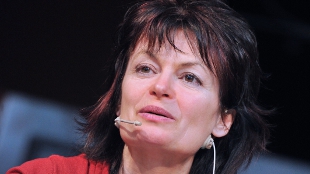 Anne Glover, former Chief Scientific Advisor to the European CommissionWIKIMEDIA, FRIENDS OF EUROPEThe European Commission (EC) decided to retire the position of Chief Scientific Advisor (CSA) last month (October 31), and researchers across Europe are upset with the move. The incoming EC administration decided to do away with the post, which has been filled by molecular biologist Anne Glover of the University of Aberdeen since its inception in 2012, as it came to power at the beginning of this month (November 1).
Anne Glover, former Chief Scientific Advisor to the European CommissionWIKIMEDIA, FRIENDS OF EUROPEThe European Commission (EC) decided to retire the position of Chief Scientific Advisor (CSA) last month (October 31), and researchers across Europe are upset with the move. The incoming EC administration decided to do away with the post, which has been filled by molecular biologist Anne Glover of the University of Aberdeen since its inception in 2012, as it came to power at the beginning of this month (November 1).
“Scientific advice must be central to EU policy making, otherwise you run the risk of having important decisions being unduly influenced by those with mixed motives,” the Royal Society’s Paul Nurse told BBC News. “If the Commission has a plausible plan for ensuring that scientific evidence will be taken seriously they need to start sharing it with people soon, otherwise they will encourage those who portray the Commission as out of touch and not willing to listen to informed advice.”
Nigel Brown, president of the Society for General Microbiology, echoed Nurse’s dismay. “I am appalled at the abolition of the CSA post,” he told BBC News. “Many of the major challenges facing Europe—climate change, food security, healthy ageing, disease control—require scientific input to policy at ...




















